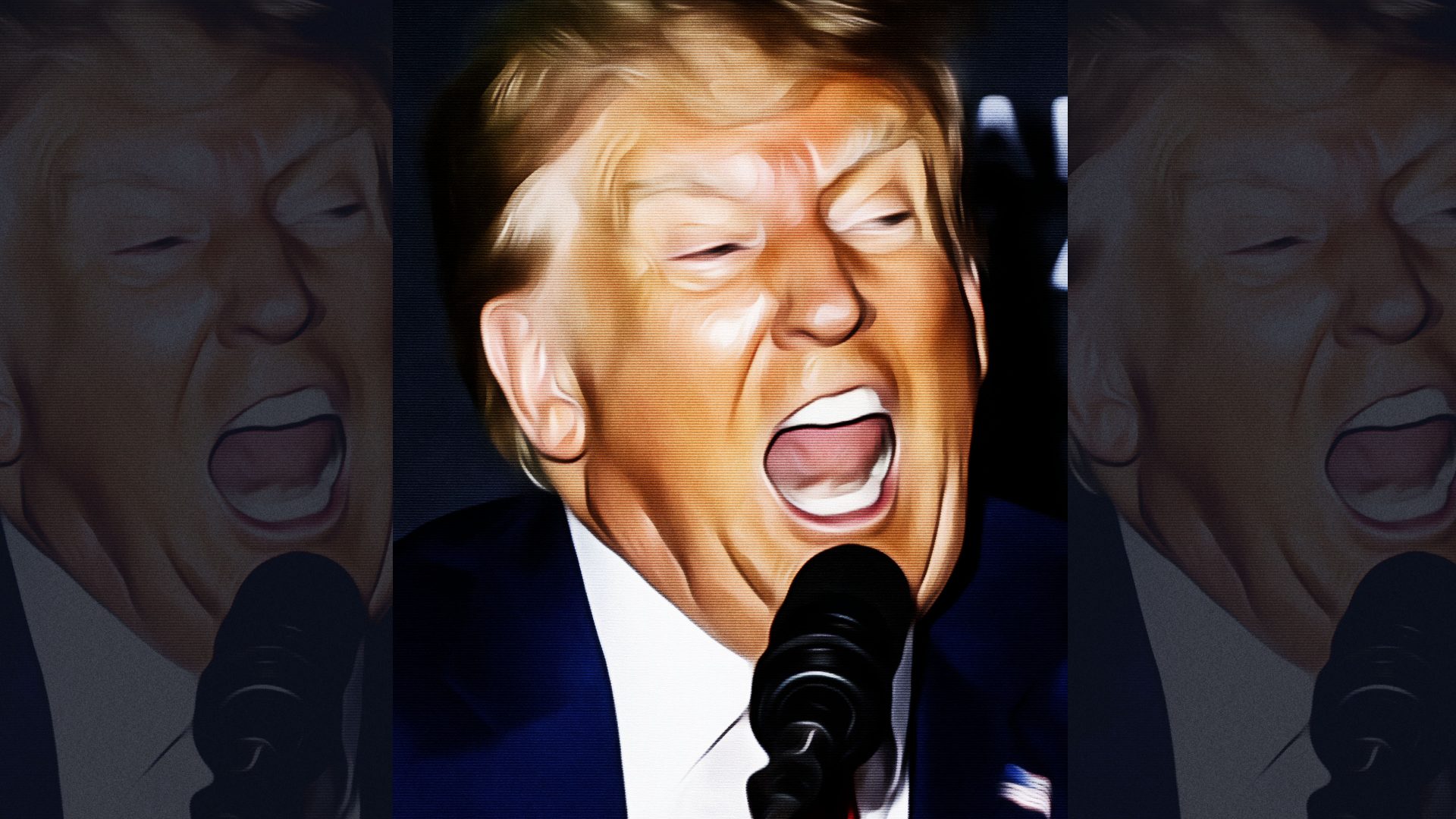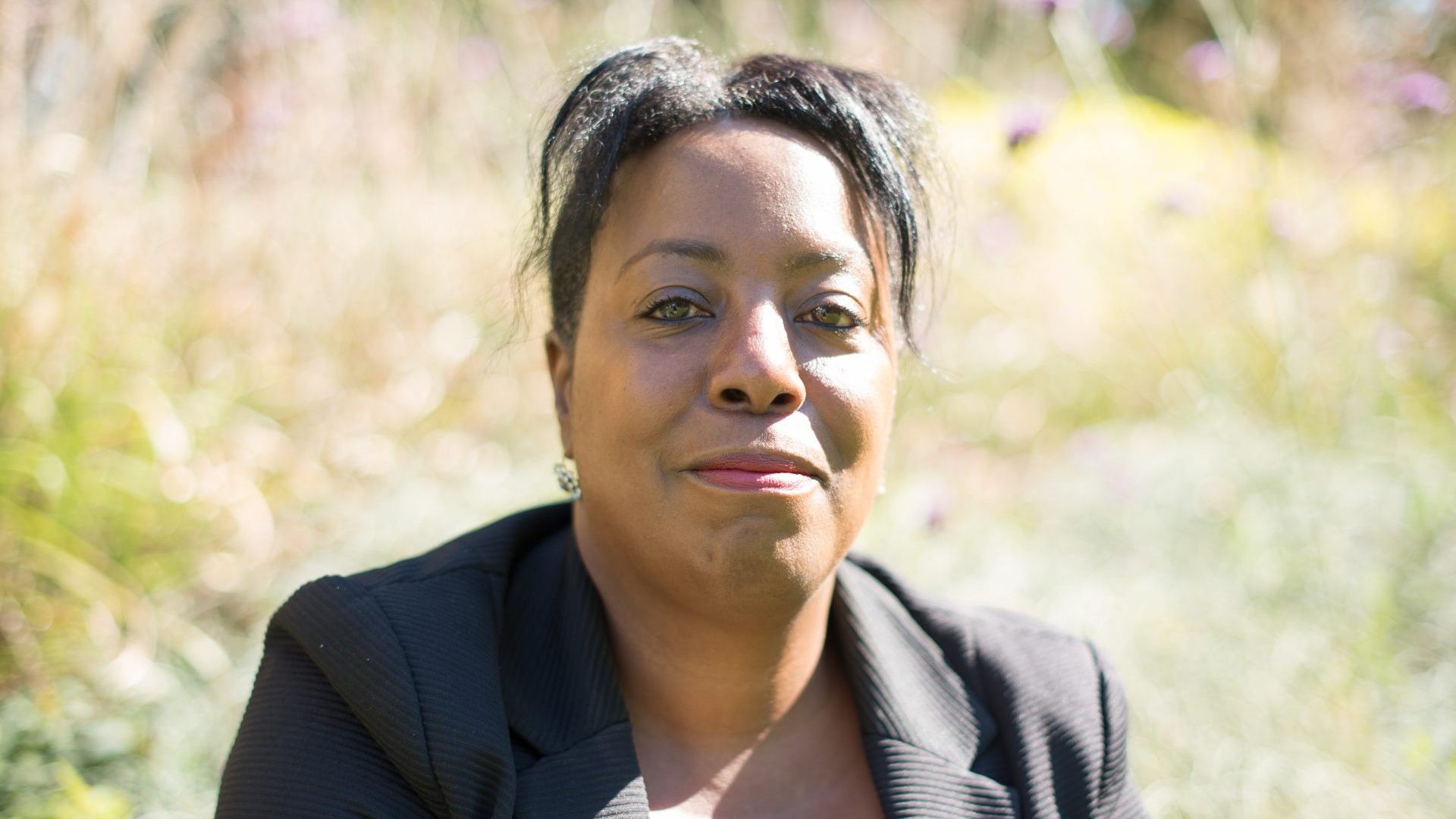Donald Trump is accused, by special prosecutor Jack Smith, of conspiracy to defraud the United States by knowingly making false claims about fraud in the 2020 election.
Trump made them, Smith says, to influence election officials.
The 45th president of the US is also accused of attempting to impede a congressional proceeding when the 2020 results were being certified on January 6, 2021. He is also accused of working with fellow conspirators to recruit fake electors who would overturn Joe Biden’s victory.
“I will talk about it! I will! They’re not taking away my first amendment rights!” the Republican Party’s front-runner yelled to an adoring crowd in New Hampshire. His bloated crimson face, sweat streaming down it, had all the defiance of a two-year-old refusing his potty.
Except that this superannuated two-year-old had just declared on social media: “If you go after me, I’m coming after you!” – an act of toddlerish defiance that the prosecution sees as an attempt to intimidate potential witnesses ahead of trial. A gagging order may follow; hence the New Hampshire meltdown.
Trump’s latest lawyer has announced that the first amendment to the US Constitution – the one that protects free speech, among other things – protects Trump against any gags on saying what he thinks of his prosecution and his prosecutors. And they have hinted that the first amendment may form the basis of his trial defence, too.
The chief hallmark of an American, to me anyway – besides the belief of too many that owning and using a firearm is a God-given right and therefore not to be regulated by mere mortals – is that we speak. We speak a lot. We say what we want when we want and where we want. Words, for many of my fellow Americans, are not systems of communication, but tools for agency – personal; familial; commercial; religious, tribal. You name it.
Congresswoman Elise Stefanik of New York, a Trump ally who ranks no 3 among House Republicans, said that Trump had “every right under the first amendment to correctly raise concerns about election integrity in 2020”.
Trump’s lawyer, John Lauro, is quoted as saying: “So the first amendment protects President Trump in this way: after 2020, he saw all these irregularities, he got affidavits from around the country, sworn testimony, he saw the rules being changed in the middle of the election process – as a president, he’s entitled to speak on those issues.”
Several Supreme Court rulings have used the first amendment to protect the rights of newspapers, journalists and others to speak their minds. Political speech is seen as core first amendment speech.
But along with obscenity and child sexual abuse images, the court has given these things lesser or no protection under the first amendment: fraud, speech integral to what is considered to be illegal conduct, and speech that leads or may lead to what is called “imminent lawless action”.
“Imminent lawless action” is based on what is considered to be “a clear and present danger”.
“Clear and present danger has a standard which must meet two independent tests: the speech must impose a threat that real evil will follow; and second that this evil, this threat is imminent.”
“They don’t want me to speak about a rigged election! They don’t want me to speak about it. Whereas I have freedom of speech, first amendment!” Trump screamed at one of his latest rallies.
President Joe Biden, he continued, is “forcing me nevertheless to spend time and money away from the campaign trail in order to fight bogus, made-up accusations and charges… I’m sorry I won’t be able to go to Iowa today, I won’t be able to go to New Hampshire today because I’m sitting in a courtroom on bullshit!”
“Bullshit! Bullshit!” his MAGA cult chanted.
Here are other landmark Supreme Court rulings on the first amendment that may be relevant to Trump’s case:
Omar Abdel-Rahman, known by many as the Blind Sheikh, was accused in the 1990s of promoting terrorism. His defence was that his violent, anti-American rants were protected under the first amendment. He lost, and was sent to prison.
In a case titled Brandenburg v Ohio, the court ruled that a Ku Klux Klan leader’s racist comments were protected speech, even when he talked about future violence.
Civil rights leader Julian Bond, who had won a special election to the Georgia state legislature back in 1965, was refused his seat by the legislature because he was opposed to the Vietnam war and had endorsed a press release saying this. The Supreme Court ruled for him because his statement did not violate law pertaining to the draft, and did not encourage anyone to engage in unlawful activity.
In short, the interpretation and application of the first amendment is complex, tricky.
But Donald John Trump has made a career, perhaps even a calling, out of what many might say is redesigning reality to be Trump-shaped. He went up and down the country claiming Barack Obama was born outside the US – and that he could prove it. But the proof never arrived, and even after Obama produced birth certificates from Hawaii, Trump never apologised.
One constitutional expert has stated that Trump’s public statements post-election were used to advance a criminal conspiracy. And that many forms of expression can become illegal under the first amendment if undertaken for corrupt purposes.
Let’s not forget, either, that Georgia’s attorney general may charge Trump under Rico, the Racketeer Influenced and Corrupt Organizations Act, for his phone call soliciting more votes in Georgia (which Biden had won) during the election. Too bad for Trumpy: somebody taped the call.
To understand what the first amendment protects and what it does not, think about it this way:
You are free to write “Vote For Trump”. All over the walls. But you are not free to spray-paint it on somebody’s car.
If the spray can wins, the Republic itself will be under threat.




